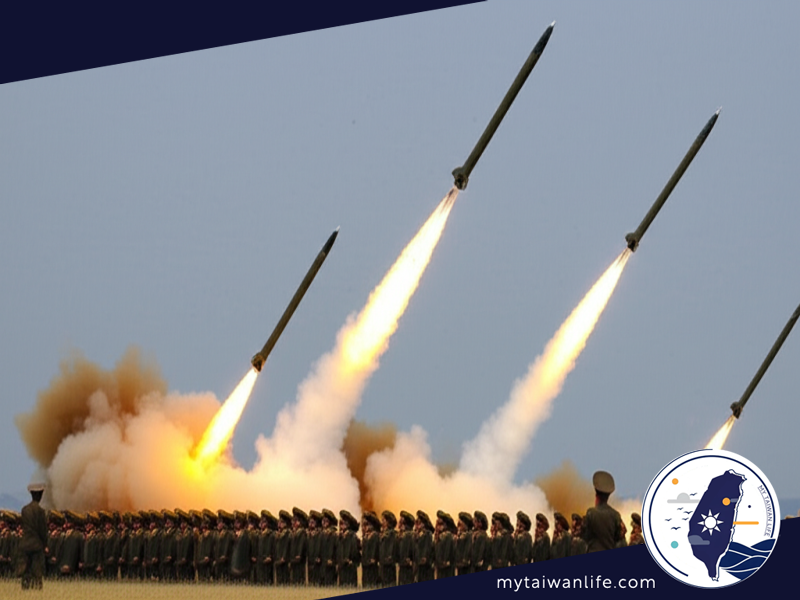North Korea's Missile Barrage: A Provocative Signal to the World
Kim Jong Un's regime launches multiple short-range ballistic missiles, raising regional tensions and sparking international concern.

SEOUL: In a move that has heightened regional tensions, North Korea launched multiple short-range ballistic missiles on Thursday, May 8th, according to South Korea's military. This latest action follows Kim Jong Un's recent tests of a new weapons system, adding to the existing international unease.
South Korea's Joint Chiefs of Staff (JCS) reported detecting several projectiles, which they believe to be short-range ballistic missiles. These missiles were fired from the Wonsan area of North Korea, traveling into the East Sea (Sea of Japan) between approximately 8:10 AM and 9:20 AM local time.
The missiles reportedly flew up to 800km before landing in the waters east of the Korean peninsula. The JCS strongly condemned the launch, characterizing it as a "clear act of provocation that poses a serious threat to peace and stability."
The South Korean military emphasized its close monitoring of North Korean activities, working in conjunction with the United States, to prevent any miscalculations. This missile launch marks North Korea's first test since March.
This recent activity comes approximately one week after Kim Jong Un observed the test-firing of a new warship weapons system. Furthermore, Pyongyang unveiled the 5,000-ton destroyer-class vessel named Choe Hyon last month. North Korea claims this vessel is equipped with the "most powerful weapons" and is slated to "enter into operation early next year."
Some analysts have speculated that the ship may be equipped with short-range tactical nuclear missiles, although North Korea has not yet demonstrated the capability to miniaturize its nuclear weapons. Moreover, South Korean military has suggested that the destroyer might have been developed with Russian assistance, potentially as a result of Pyongyang providing thousands of troops to support Moscow in its conflict with Kyiv.
The incident also occurred as Russia prepared to hold World War II Victory Day commemorations, an event to be attended by world leaders, including China's Xi Jinping, but excluding Kim Jong Un. A three-day truce in the conflict with Ukraine was ordered by Russian President Vladimir Putin to coincide with the celebrations, though Kyiv has dismissed this initiative.
According to Yang Moo-jin, president of the University of North Korean Studies in Seoul, the Thursday missile launch "serve[d] as a reminder of North Korea's contribution and stake in Russia's apparent efforts to commemorate Victory Day as a triumph over Ukraine."
Other Versions
La andanada de misiles de Corea del Norte: Una señal provocadora para el mundo
Barrage de missiles de la Corée du Nord : Un signal provocateur pour le monde entier
Tembakan Rudal Korea Utara: Sebuah Sinyal Provokatif kepada Dunia
Il lancio di missili della Corea del Nord: Un segnale provocatorio per il mondo
北朝鮮のミサイル乱射:世界への挑発的なシグナル
북한의 미사일 발사: 전 세계에 보내는 도발적 신호
Pag-atake ng Misayl ng Hilagang Korea: Isang Mapanghamong Senyas sa Mundo
Ракетный залп Северной Кореи: Провокационный сигнал миру
การยิงขีปนาวุธของเกาหลีเหนือ: สัญญาณยั่วยุสู่โลก
Vũ khí hỏa lực của Triều Tiên: Một tín hiệu khiêu khích với thế giới

